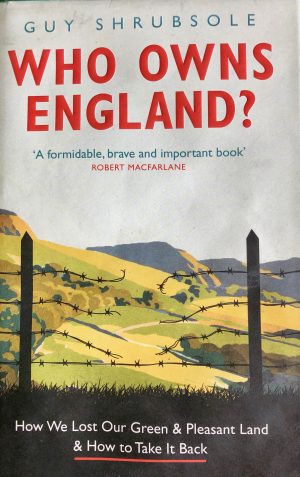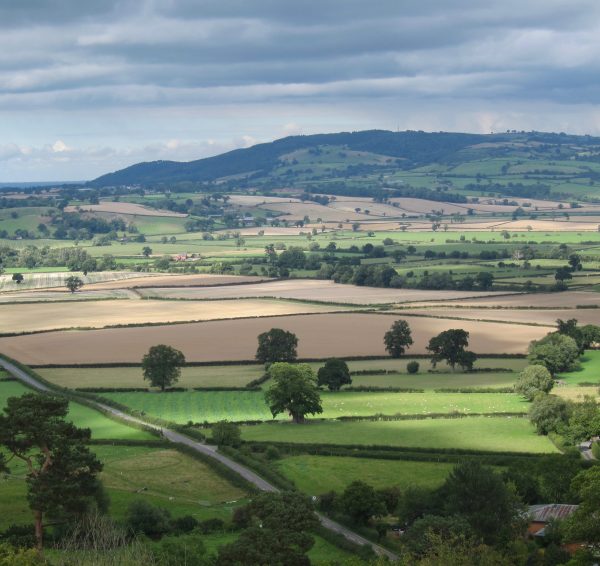Who owns England?

The answer is that we don't fully know but we probably soon will. The land registry has been pushing for all the unrecorded parts of England to be registered and Guy Shrubsole and others have been pushing the Land Registry to put more of the information freely into the public domain. What we do know so far is very well documented in Guy's book which is both analytical and full of relevant anecdotes. England is 32 million acres in size with over half being agricultural and several million acres is natural waste such as mountains and bog so the urban area is only around 12% - less than 4 million acres. The book establishes that there are some very chunky landowners such as the government, but there are also large holdings that go back, in effect, to the year 1066 such as the many estates where the owners can trace the titles back to the Norman conquest to say nothing of the Duchies of Cornwall and Lancaster which are "sort of" owned by the Royals. With help from ace researcher and collaborator Anna Powell-Smith, Guy Shrubsole was able to work out that about 12% of England is owned by public sector bodies if you include the Crown and Church and conservation charities. A further large proportion (around 5%) is held by the top 100 land-owning companies in England and Wales where the biggest owners including utility companies (United Utilities 140,000 acres and Welsh Water 78,000 acres).
A table of land owned by British Dukes shows that just a couple of dozen of them own over a million acres and a comparison with 1873 figures shows that the holding of just those 24 estates has dropped from about 3.7 million acres. This demonstrates how enduring land ownership can be but also how the "feudal" owners have been much reduced, albeit over a long 140-year period. If anything Scotland is even more concentrated than England - with its 20 million acres but "Who Owns England?" only ventures into the Scottish position in passing, recognising that there are many different challenges in Scotland and that it has been well covered by other writers such as Andy Wightman ("Who owns Scotland").

As the author says, "I soon realised that a proper understanding of land ownership in this country can only really come by walking through it... trespassing across England I started to appreciate how the control of land affects the psyche..." Guy Shrubsole is a land reformer who rails against our highly concentrated land ownership but also about how opaque some ownership is. Much is held offshore and through trusts and in jurisdictions where it's hard to track down the beneficial owner. This has evolved largely as a way for wealthy families to reduce inheritance tax and other taxes but also in order to avoid estates being broken up - most large land-owning families still follow the principle of primogeniture - where the land is passed down to the eldest son or eldest child to avoid the estates being broken up. Egalitarian and environmentalist that he is, Guy resents the large government and EU subsidies that these estates receive and he points out that the twenty four non-royal dukes pick up over £8 million each year in farm subsidies. He also hates the way that landowners can make money from landfill and allow "their" land to be systematically degraded.
One of the charms of the book is how Guy casually mentions his own direct action to try to bring about change - in the early hours one day he chained himself to a digger to oppose large scale coal mining, but he uses this to illustrate how large many private estates are and how valuable mineral and other landowners' rights can be. He also ventures without permission into government property such as the underground tunnels in Westminster to show how extensive and varied is the Ministry of Defence estate. I have done some work with Guy and he is the most honest, lucid and thoughtful colleague you could wish for - this book exhibits all these qualities. If you want to know about English land ownership this is now surely a must-read.
Comments are closed for this post.

“several million acres is natural waste such as mountains and bog” – I would not describe these areas as “natural waste”!
Doug
10 February, 2023